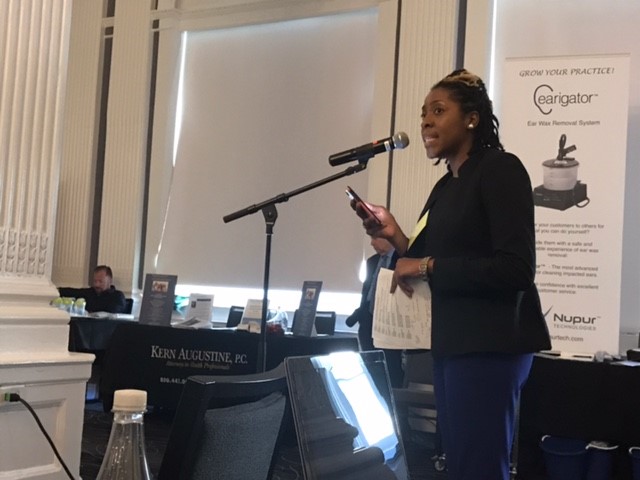Emma Walsh-Alker, a summer intern at FRAC and student at Haverford College, interviewed Dr. Wilder about her work to help more family practitioners address food insecurity. Dr. Wilder, a graduate of Harvard Medical School, recently joined a healthcare start-up company in New York City. She is the former Director of Quality Improvement/Medical Director at the William F. Ryan Community Health Center in New York and a consultant to the Harlem Children’s Zone.

No one understands the importance of helping patients achieve a healthy lifestyle more than Dr. Wilder. Affectionately called “The City Doc” of Harlem, Dr. Wilder works to empower underserved communities, especially communities of color. She recognizes that social determinants of health, including food security and access to healthy food, directly impact her patients’ health. Unfortunately, access to nutrition is no easy feat for the 42.2 million people in food-insecure households across the U.S.
Dr. Wilder, a member of the American Academy of Family Physicians (AAFP), is on track to build support for AAFP to adopt its own national resolution this fall to address food insecurity. She cites the success of the American Academy of Pediatrics’ (AAP) policy statement, “Promoting Food Security for All Children,” as encouragement. Such a resolution would highlight the impact of food insecurity and opportunities to address it among AAFP’s 129,000 members.
Dr. Wilder’s advocacy resulted in the New York State Academy of Family Physicians (NYSAFP) recently passing Resolution 17-05 “Screening, Intervening, and Advocating to Address Food Insecurity,” which:
RESOLVED, that the New York State Academy of Family Physicians (NYSAFP) will support efforts to screen patients for food insecurity, using tools like the validated Hunger Vital Sign™, and connect patients to federal nutrition programs and resources; and be it further
RESOLVED, that the NYSAFP delegates to the AAFP COD [Congress of Delegates] bring forth a resolution directing the AAFP to create a policy to support a strong and effective national nutrition safety net for vulnerable, low-income individuals by protecting and defending the federal nutrition programs from block grants, structural changes, and budget cuts, and by ensuring all people in the U.S. have access to the nutrition they need to live healthy and productive lives; and be it further
RESOLVED, that the NYSAFP will educate its members on the health implications of food insecurity, health benefits of the federal nutrition programs, promising interventions to address food insecurity in health care settings, and advocacy opportunities to address food insecurity at the local, state, and national level.
Dr. Wilder’s enthusiasm for addressing the issue of food insecurity inspired some of her colleagues in North Carolina to propose a similar resolution at AAFP’s National Conference of Family Medicine Residents and Medical Students.
With the passage of the NYSAFP and AAFP National Conference resolutions, Dr. Wilder and her colleagues are primed to move forward on securing a national resolution to address food security at the AAFP National Congress of Delegates meeting in October.


